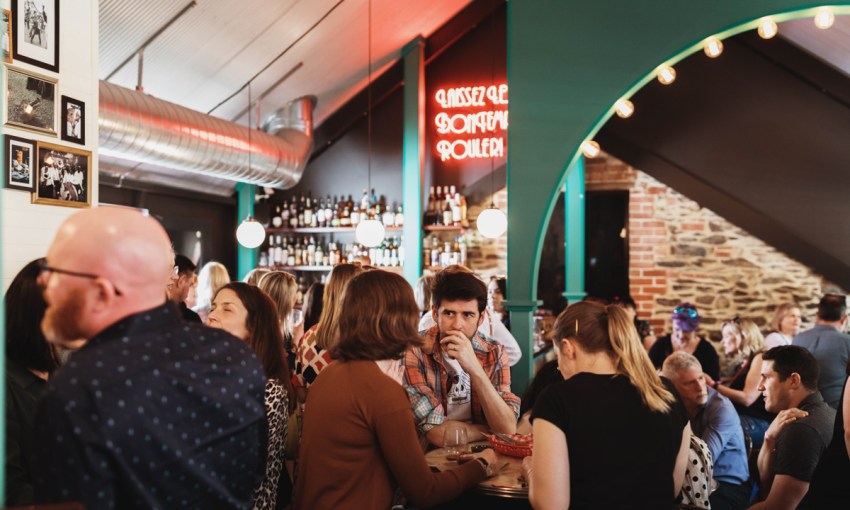A dozen city bars and nightclubs are participating in a year-long pilot training program called Project Night Light. It has one major aim: to make bars and nightclubs safe and inviting for all.
Nightlife for everyone
When Rachel Krieg worked as an East End bartender in the ‘90s, she was told by her bar manager that her work uniform was going to change. “We were, like, ‘Oh yeah, great’,” the owner of The Howling Owl tells CityMag.
“They gave us push-up bras. We were given scoop-neck tops, too. But this wasn’t Hooters. That was our job — to wear our push-up bras to work.”
If you’re concerned about your relationship or that of a friend or family member, contact 1800 RESPECT (1800 737 732), DV Crisis Line on 1800 800 098, or contact SAPOL on 131 444 or 000 in an emergency.
Sitting in a wooden booth in her upmarket gin bar, nestled off Vaughan Place, Rachel is telling us this anecdote to demonstrate how far the social and working culture for women in hospitality has come.
To put it in perspective, in 1949 The Adelaide Mail newspaper reported that former Liquor Trades Union Federal Secretary F. Ryan said female bartenders (“barmaids”) that looked like a “frump” were un-hireable. Now, off the back of the MeToo movement and reportage highlighting how insidious sexual harassment and assault is in Adelaide’s hospitality industry, the safety of female workers and patrons in these workplaces can’t be ignored.
As a business owner, Rachel is responsible for roughly 10 employees in her two-storey venue. Twice in our interview, she refers to herself as a “fierce mama bear”. Out the back of The Howling Owl, in the store room, her charitable nature is on display: there are female sanitary products available for staff to use. There are also two 1800RESPECT cards pinned above the pads. To Rachel, being a boss means taking responsibility for the safety of her staff and customers.
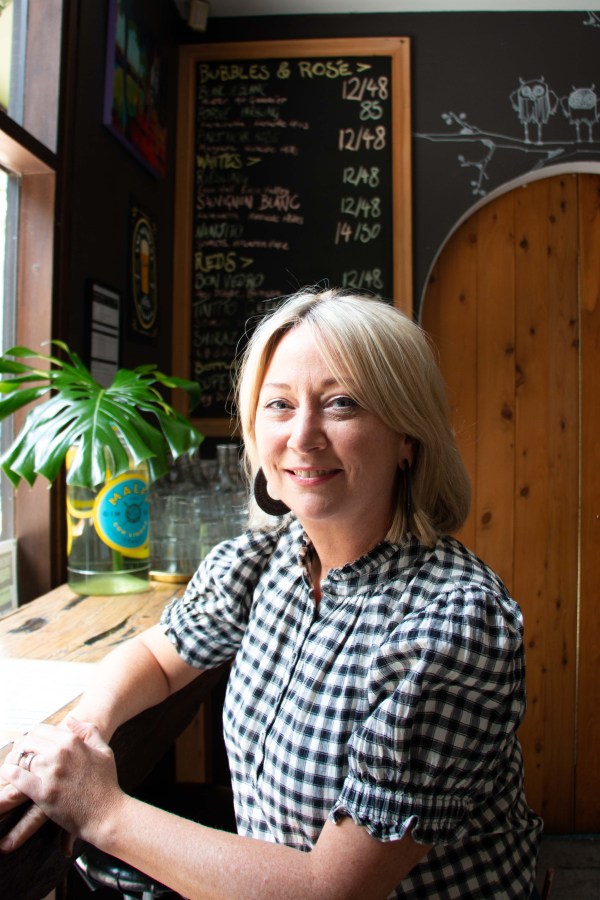
Rachel Krieg
“If anyone spoke poorly to my team, I wouldn’t take it personally but I will also be the first person to stand up and say ‘Inappropriate, move on’,” she says.
This protectiveness is partly why Rachel signed up to participate in the City of Adelaide’s trial education program, Project Night Light. As part of the pilot, two staff members from 12 licensed venues – spanning crammed, heaving nightclubs to quiet small bars – will do a year’s worth of basic bystander intervention training.
As part of the training, attendees will learn how to appropriately respond to customers who disclose experiences of family and domestic violence or sexual assault.
Lord Mayor Jane Lomax-Smith is a champion of the program, and says she wants the city to be a welcoming and inviting place for “everybody”. She anticipates this pilot will empower staff at city venues to act on warning signs to stop violence in its tracks.
“Violence against women is preventable and these venues will demonstrate how a proactive approach can make the city and venues the preferred choice for a night out,” she says.
According to Our Watch, Australia’s leading not-for-profit campaigning against violence against women, one in two women have experienced sexual assault in their lifetime. According to the organisation, one woman a week on average is murdered by a current or former partner.
Something we don’t know, however, is how commonplace sexual harassment or violence is in the state’s hospitality industry. Although the Australian Human Rights Commission released its fifth national survey on sexual harassment in Australian workplaces report today, and modelling highlighted that 44 per cent of workers in arts and recreation industries and 34 per cent of staff in hospitality and food sectors experienced sexual harassment at work, we don’t know the data breakdown by state.
We do know that after a deluge of complaints, South Australia’s Equal Opportunity Commissioner Jodeen Carney told CityMag she wanted to understand the extent of the problem through a review, but was told by industry groups they didn’t want to fund it.
As part of Project Night Light, each venue was audited by a member of the City of Adelaide and South Australian Police. The Howling Owl “came through really well,” Rachel says, but the walkthrough highlighted things she wasn’t aware of. This includes a lack of external street lighting and small spaces within the venue where customers can seek refuge if feeling uneasy.
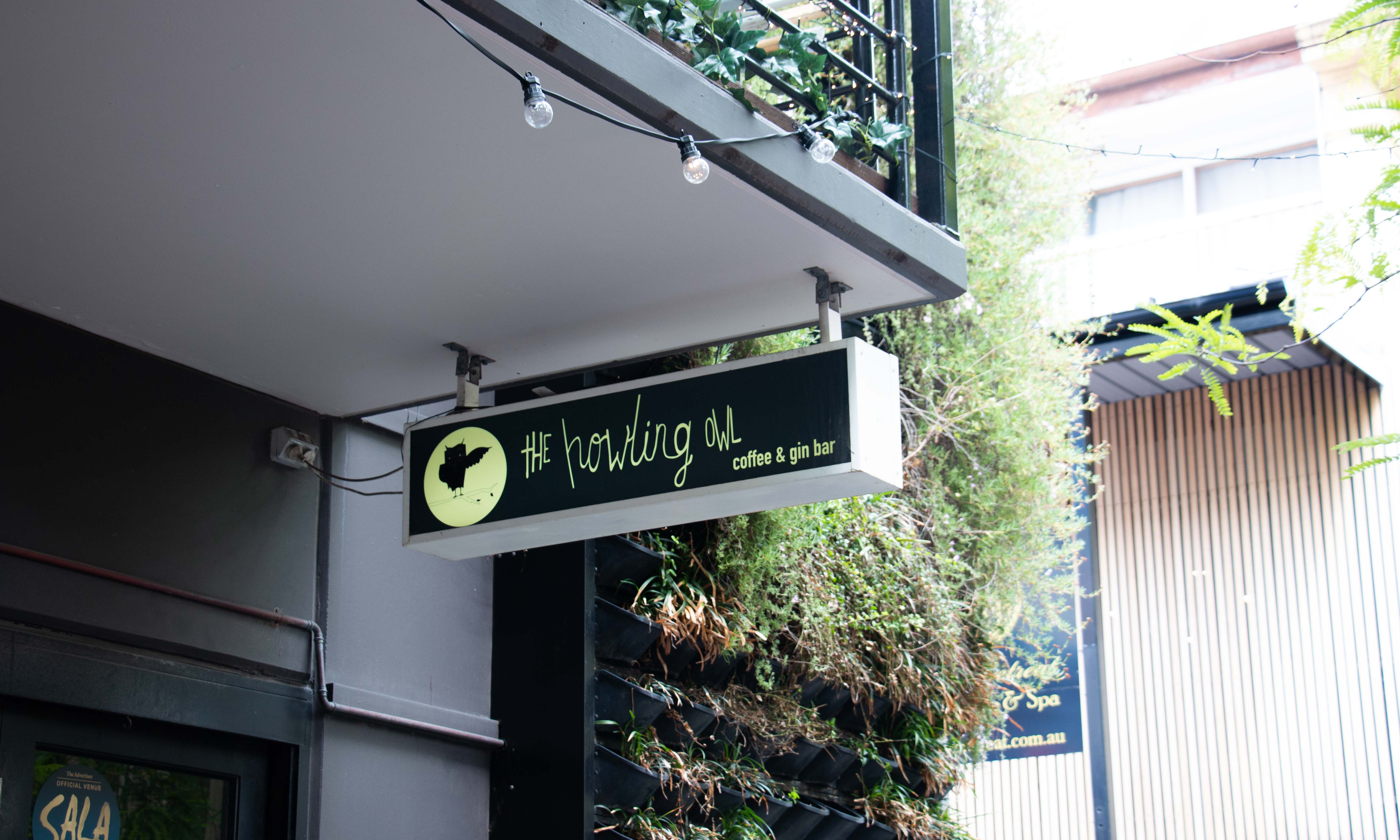
The Howling Owl’s frontage
Rachel is learning the skills to empower her staff and customers. Unlike her 1990s self, when she didn’t know she could fight back against sexist behaviour, she hopes her employees feel empowered with this knowledge and can wield it professionally and personally.
“It’s really important to keep the conversation up there, to keep it front and centre,” Rachel says.
“I think the more team members who are aware of this, they are also patrons when they go out.
“If they’re aware of it from a work point of view, they’re also aware of it from a personal point of view.”
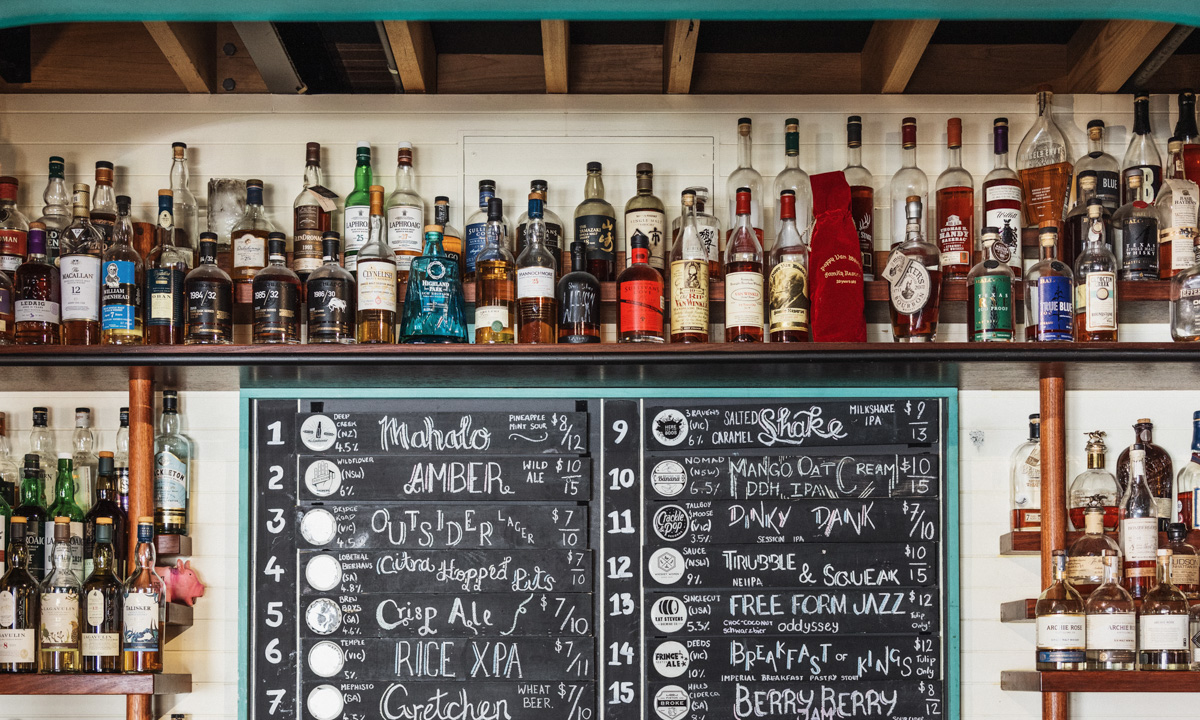
NOLA Adelaide. This picture: Supplied
A little way down the road in the East End, towards Murlawirrapurka Rymill Park, New Orleans-inspired bar NOLA is also participating in the nightlife safety training. NOLA’s manager, Jaime Fraser, is one of the venue’s two staff members who put up their hands to do the work.
Upstairs on a Tuesday afternoon, in a room-full of upside-down bar stools on clean tables, Jaime tells CityMag he’s seen “a lot” of things that have made him uneasy in his 20-plus years in the industry.
“There’s always situations that can make you feel uncomfortable, like when you see someone behaving towards someone else in a certain way,” Jaime says.
“It’s kind of your responsibility to make sure everyone’s alright, and at the end of the day what we sell is a good time. We want everyone to have a good time.”
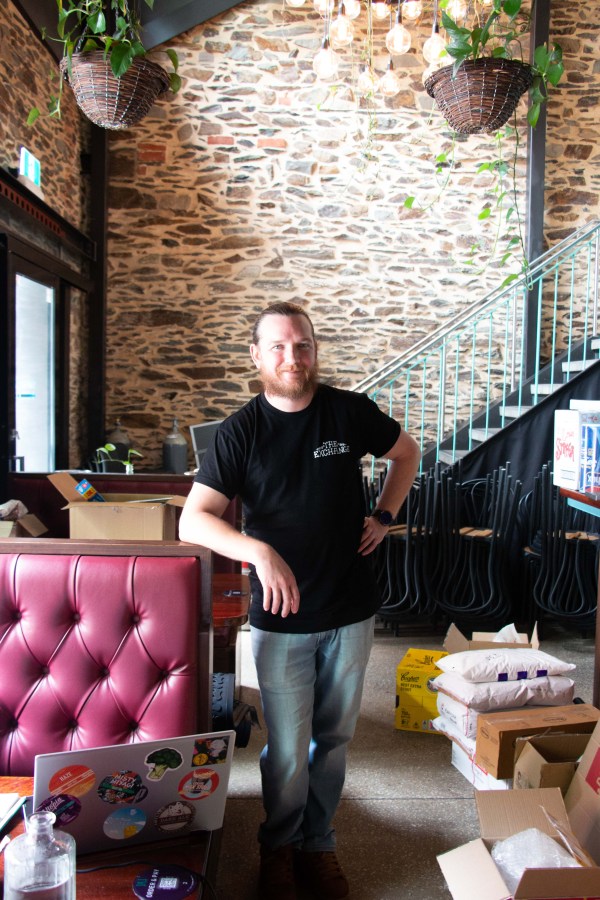
Jaime Fraser
The Big Easy Group, the business that owns NOLA and a string of other hospitality ventures, went through its own independent safety training earlier this year, Jaime says. This was because the business “expanded to a size where we thought we needed some external HR involvement”, he explains.
Jaime, who is part of a team spanning 12 front-of-house staff and six back-of-house staff, says he is more than happy to reinforce his knowledge on diffusing violent situations with the refresher course. He is particularly interested in learning how to de-escalate violent situations, as insider industry safety signals – such as angel shots and ‘Asking for Angela’ – may be now more commonly known.
He says the skills are something that will last a lifetime.
“It’s probably something we should have all been thinking about a long time ago,” Jaime says. “There has been a bit of a movement in hospitality recently.”
In the face of the mountains of data about how prevalent violence against women is, we ask Jaime whether this training will make a dent. He’s confident that over time, educational opportunities will form part of a bigger social wave. The aim is that the currents of positive change will eventually erode bad habits.
“But, like any social change, it’s going to take a long time,” he says.
“We’re making steps in the right direction.”
If you’ve experienced rape or sexual assault, Yarrow Place is a free and confidential service for people over 16 and offers counselling, advocacy and medical support. Call 1800 817 421 or 8226 8777 or visit their website.
You can also call 1800 RESPECT on 1800 737 732. If this story has raised issues for you, call LifeLine on 13 11 14.



